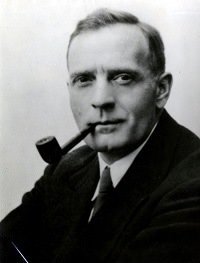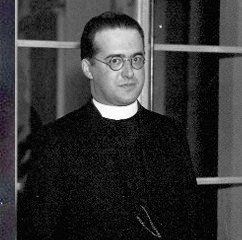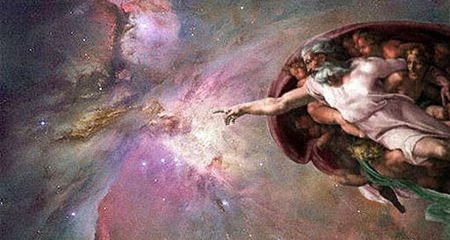Origin of the Universe ¿Science vs. Religion?
Good morning everyone! Today we will be talking about a quite complex content as you can see in the title of this post, which, still gives much to talk about today. In this topic we will talk about how science and religion conceive or approach this topic.
Without saying more, let's start with the theory that is more accepted by the scientific community:
The Big Bang or Big Bang, is a theory that raises the fact that about 14 billion years ago a concentrated particle of energy burst forth, creating, not only matter, but also, space and time . It is well known that this theory was based on the astronomer Edwin Hubble in 1929, who noticed that the galaxies were moving away from each other. This led him to infer that the universe is constantly expanding.
In 1931, Georges Lemaître, priest and astrophysicist, is the one who affirms that the universe had its origins through a great explosion, as expressed by the website Science, Reason and Faith (CRYF), in his article, The Big Bang and The Creation (2014):
"Lemaître presented this model for the first time, that is, the" primitive atom hypothesis "as he called it, in that year, in an article published in the Revue des Questions Scientifiques, and months later he defended it in the Bristish Association for the Advancement of Science. "source
Nowadays, this position is not the only one, but as mentioned in the initial paragraph, it is the most accepted. I have to highlight the fact that although it is true that there is evidence to support it, either by the constant expansion of the universe, the degrees of nitrogens and helios that exist after the explosion or even by the data of stars of younger age, which do not surpass the Big Bang chronology. They are still insufficient evidence to fully support this theory and therefore continue to exist important unsolved questions


Photo: Edwid Hubble Photo:Georges Lemaître
source source
It can be said that it is a belief system which seeks to explain the creation of the universe by divine forces. In this theory, God exercises the role of omnipotent creator of all things. In spite of having already been present this theory, it really takes force from 1859 because, in the first instance, it went against the theory of evolution proposed by Charles Darwin.
Creationism was proposed by James Ussher (1581-1656), an Irish archbishop, who affirmed that the origin of man could be evidenced in the passages of the Bible, specifically in the book of Genesis.
Nowadays, creationism has several subcurrents that in one way or another assimilate certain parts of what is exposed in the theory of evolution, one of them is pro-evolutionary creationism; Believes in the existence of a creator and a purpose, but accepts that living beings have been formed through a process of natural evolution. There is also intelligent design which he proposes; that given the complexity in the process of creating the earth and of living beings, an intelligent being had to intervene.

To be honest, I lean more for the theory that promulgates science, and that is how the apostle Tomas "See to Believe" and in this case, there is evidence that support one way or another part of what is proposed. This does not mean that I miss the Creation Theory or anything else, on the contrary, I have respect for those who are in favor of them, as I said, nowadays nothing is proven in its entirety.
Congratulations @caleta! You have completed the following achievement on the Steem blockchain and have been rewarded with new badge(s) :
Click on the badge to view your Board of Honor.
If you no longer want to receive notifications, reply to this comment with the word
STOPDo not miss the last post from @steemitboard: